Peugeot 308 vs VW ID.4 – Which model is better for everyday use?
Costs and Efficiency:
Looking at overall running costs, both models reveal some interesting differences in everyday economy.
Peugeot 308 has a a bit advantage in terms of price – it starts at 29200 £, while the VW ID.4 costs 34600 £. That’s a price difference of around 5335 £.
When it comes to electricity consumption, both models perform equally – each averaging 15.60 kWh per 100 km.
As for range, the VW ID.4 performs evident better – achieving up to 569 km, about 119 km more than the Peugeot 308.
Engine and Performance:
Power, torque and acceleration say a lot about how a car feels on the road. This is where you see which model delivers more driving dynamics.
When it comes to engine power, the VW ID.4 has a significantly edge – offering 340 HP compared to 195 HP. That’s roughly 145 HP more horsepower.
In acceleration from 0 to 100 km/h, the VW ID.4 is clearly quicker – completing the sprint in 5.40 s, while the Peugeot 308 takes 7.60 s. That’s about 2.20 s faster.
In terms of top speed, the Peugeot 308 performs somewhat better – reaching 225 km/h, while the VW ID.4 tops out at 180 km/h. The difference is around 45 km/h.
There’s also a difference in torque: VW ID.4 pulls clearly stronger with 679 Nm compared to 300 Nm. That’s about 379 Nm difference.
Space and Everyday Use:
Whether family car or daily driver – which one offers more room, flexibility and comfort?
Both vehicles offer seating for 5 people.
In curb weight, Peugeot 308 is clearly perceptible lighter – 1453 kg compared to 1975 kg. The difference is around 522 kg.
In terms of boot space, the VW ID.4 offers evident more room – 543 L compared to 412 L. That’s a difference of about 131 L.
In maximum load capacity, the VW ID.4 performs slightly better – up to 1575 L, which is about 252 L more than the Peugeot 308.
When it comes to payload, VW ID.4 hardly perceptible takes the win – 551 kg compared to 503 kg. That’s a difference of about 48 kg.
Who comes out on top?
Overall, the VW ID.4 shows itself to be wins the duel decisively and secures the title of DriveDuel Champion.
It convinces with the more balanced overall package and proves to be the more versatile choice for everyday use.
Costs and Consumption
View detailed analysis
Engine and Performance
View detailed analysis
Dimensions and Body
View detailed analysis
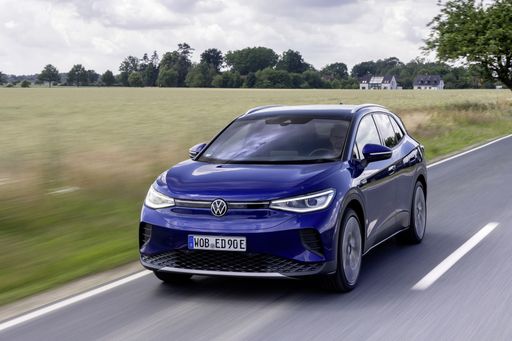 @ Volkswagen AG / VW Media
@ Volkswagen AG / VW Media
VW ID.4
Peugeot 308
The Peugeot 308 brings a sleek, feline profile and an unexpectedly upscale cabin, with clever packaging and materials that feel a touch more premium than you might expect. It’s composed on the road, easy to live with for daily life, and a smart choice if you want a stylish hatch that still behaves when the road gets interesting.
details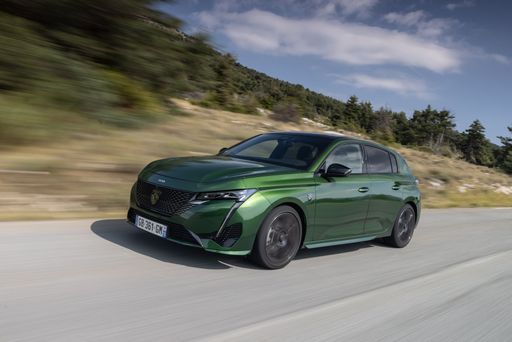 @ Peugeot / Stellantis Media
@ Peugeot / Stellantis Media
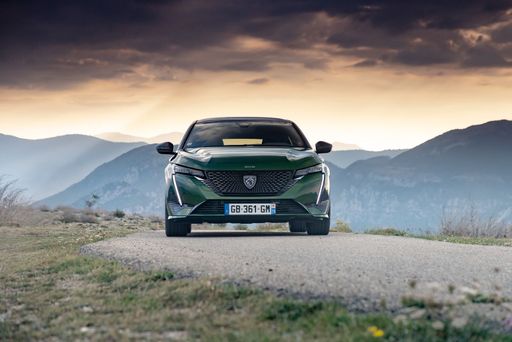 @ Peugeot / Stellantis Media
@ Peugeot / Stellantis Media
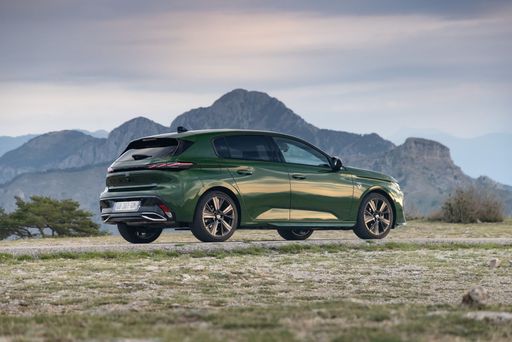 @ Peugeot / Stellantis Media
@ Peugeot / Stellantis Media
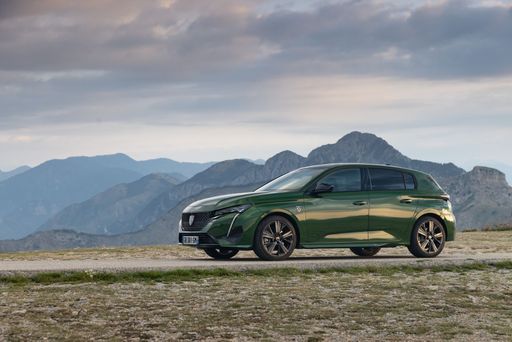 @ Peugeot / Stellantis Media
@ Peugeot / Stellantis Media
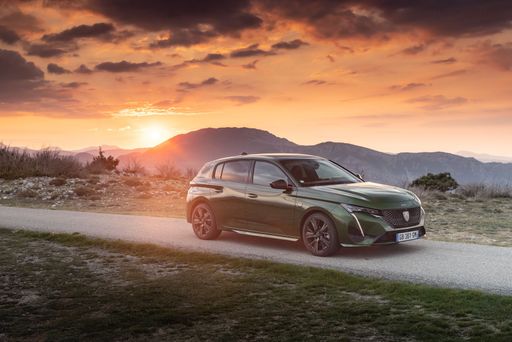 @ Peugeot / Stellantis Media
@ Peugeot / Stellantis Media
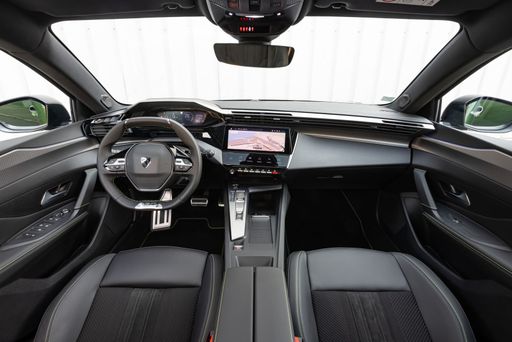 @ Peugeot / Stellantis Media
@ Peugeot / Stellantis Media
VW ID.4
The VW ID.4 is a calm, roomy electric SUV that turns everyday driving into a quietly confident experience, its practical packaging and smooth manners tailored perfectly for family life. Volkswagen's solid build and intuitive interior tech mean you get electric practicality without the sci‑fi theatrics, making the ID.4 a sensible, surprisingly likable choice for most buyers.
details @ Volkswagen AG / VW Media
@ Volkswagen AG / VW Media
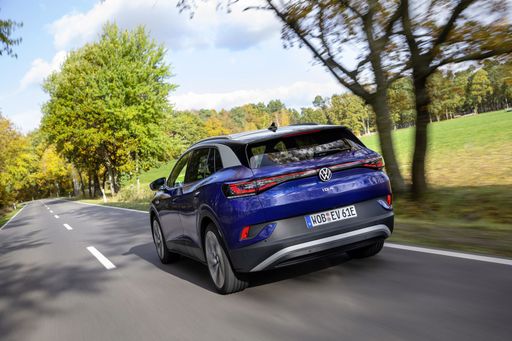 @ Volkswagen AG / VW Media
@ Volkswagen AG / VW Media
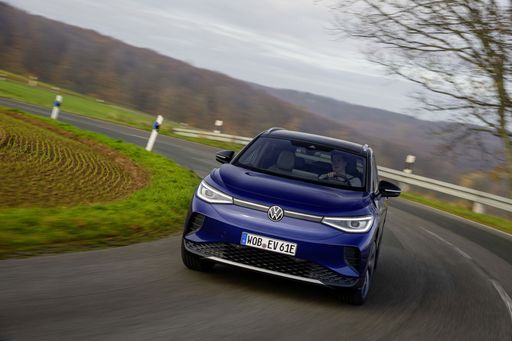 @ Volkswagen AG / VW Media
@ Volkswagen AG / VW Media
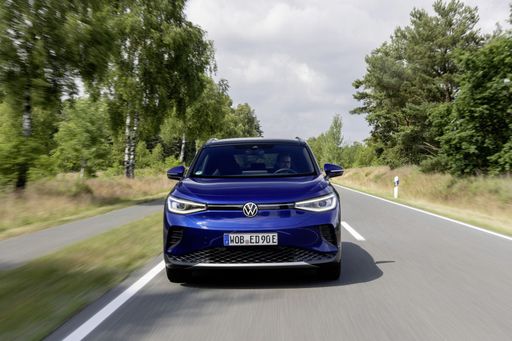 @ Volkswagen AG / VW Media
@ Volkswagen AG / VW Media
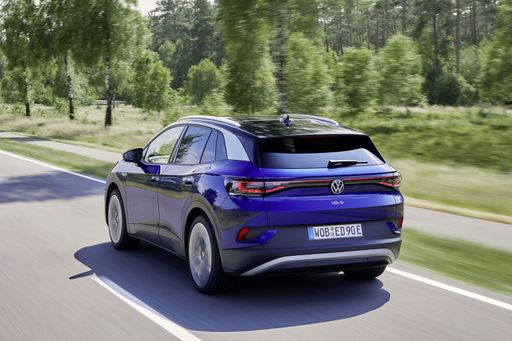 @ Volkswagen AG / VW Media
@ Volkswagen AG / VW Media
 @ Volkswagen AG / VW Media
@ Volkswagen AG / VW Media
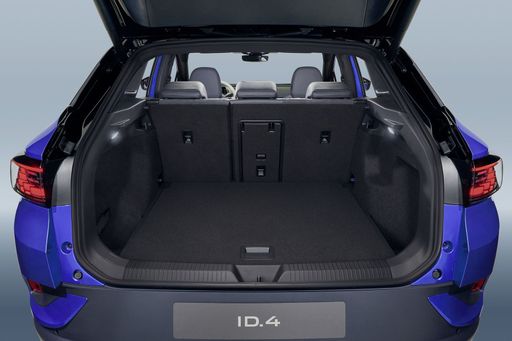 @ Volkswagen AG / VW Media
@ Volkswagen AG / VW Media
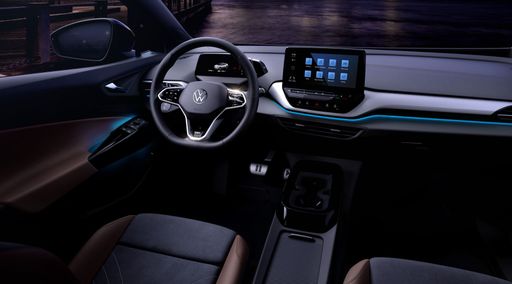 @ Volkswagen AG / VW Media
@ Volkswagen AG / VW Media
 @ Peugeot / Stellantis Media
@ Peugeot / Stellantis Media
|
 @ Volkswagen AG / VW Media
@ Volkswagen AG / VW Media
|
|
|
|
Costs and Consumption |
|
|---|---|
|
Price
29200 - 42600 £
|
Price
34600 - 47200 £
|
|
Consumption L/100km
2.3 - 5 L
|
Consumption L/100km
-
|
|
Consumption kWh/100km
15.60 kWh
|
Consumption kWh/100km
15.6 - 17 kWh
|
|
Electric Range
78 - 450 km
|
Electric Range
356 - 569 km
|
|
Battery Capacity
0.40 kWh
|
Battery Capacity
52 - 77 kWh
|
|
co2
0 - 129 g/km
|
co2
0 g/km
|
|
Fuel tank capacity
42 - 52 L
|
Fuel tank capacity
-
|
Dimensions and Body |
|
|---|---|
|
Body Type
Hatchback
|
Body Type
SUV
|
|
Seats
5
|
Seats
5
|
|
Doors
5
|
Doors
5
|
|
Curb weight
1453 - 1749 kg
|
Curb weight
1975 - 2248 kg
|
|
Trunk capacity
314 - 412 L
|
Trunk capacity
543 L
|
|
Length
4367 mm
|
Length
4582 - 4584 mm
|
|
Width
1852 mm
|
Width
1852 mm
|
|
Height
1438 mm
|
Height
1619 - 1634 mm
|
|
Max trunk capacity
1258 - 1323 L
|
Max trunk capacity
1575 L
|
|
Payload
430 - 503 kg
|
Payload
511 - 551 kg
|
Engine and Performance |
|
|---|---|
|
Engine Type
Petrol MHEV, Diesel, Plugin Hybrid, Electric
|
Engine Type
Electric
|
|
Transmission
Automatic
|
Transmission
Automatic
|
|
Transmission Detail
Dual-Clutch Automatic, Automatic Gearbox, Reduction Gearbox
|
Transmission Detail
Reduction Gearbox
|
|
Drive Type
Front-Wheel Drive
|
Drive Type
Rear-Wheel Drive, All-Wheel Drive
|
|
Power HP
131 - 195 HP
|
Power HP
170 - 340 HP
|
|
Acceleration 0-100km/h
7.6 - 10.6 s
|
Acceleration 0-100km/h
5.4 - 9 s
|
|
Max Speed
170 - 225 km/h
|
Max Speed
160 - 180 km/h
|
|
Torque
230 - 300 Nm
|
Torque
310 - 679 Nm
|
|
Number of Cylinders
3 - 4
|
Number of Cylinders
-
|
|
Power kW
96 - 144 kW
|
Power kW
125 - 250 kW
|
|
Engine capacity
1199 - 1598 cm3
|
Engine capacity
-
|
General |
|
|---|---|
|
Model Year
2025
|
Model Year
2023 - 2025
|
|
CO2 Efficiency Class
C, D, B, A
|
CO2 Efficiency Class
A
|
|
Brand
Peugeot
|
Brand
VW
|
Is the Peugeot 308 offered with different drivetrains?
Available configurations include Front-Wheel Drive.
The prices and data displayed are estimates based on German list prices and may vary by country. This information is not legally binding.
